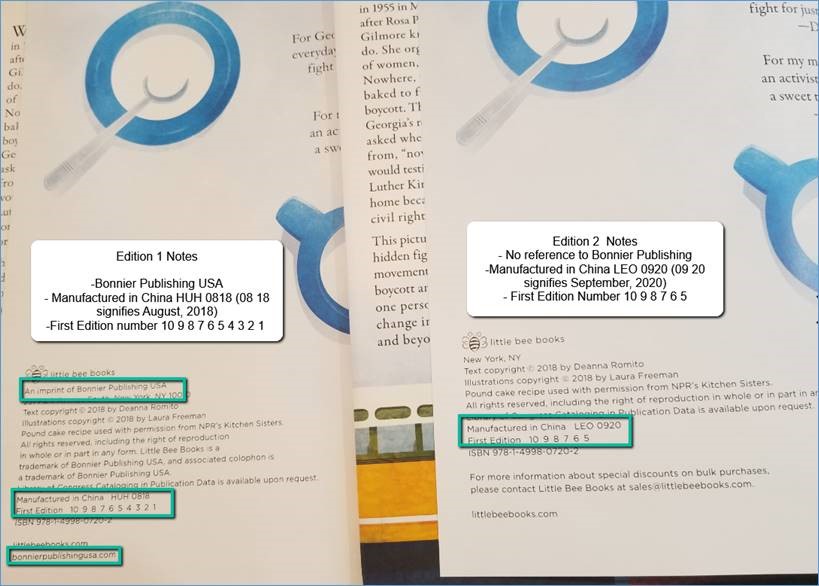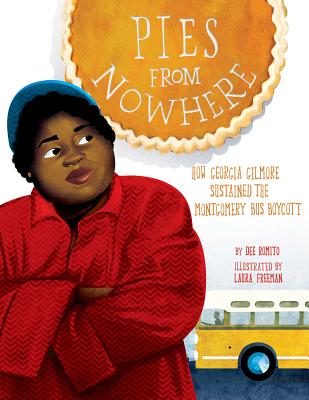We are pleased to share that there is a new and improved edition available of Pies from Nowhere: How Georgia Gilmore Sustained the Montgomery Bus Boycott. The new edition include edits made by author Dee Romito, based on feedback from SNCC veteran and Eyes on the Prize series associate producer Judy Richardson.
Pies from Nowhere tells the true story of Georgia Gilmore and the Club from Nowhere, a grassroots project to provide food and funds for the Montgomery Bus Boycott.
It was already a good book. However, Richardson noticed important ways in which it could be more specific and explicit about issues of race and organizing. Teaching for Change published that critique at Social Justice Books and the Zinn Education Project in 2019. We shared it with the author who immediately responded to say that she would work with her publisher to address the concerns in the next printing.
Romito not only made the edits, she sent the text in advance to Richardson to make sure they were done correctly. We applaud Romito and her publisher for taking the suggested edits to heart. We wish that more authors and publishers would do the same.
The edited version of Pies from Nowhere appears in the printing that was released in September of 2020. The ISBN and copyright date (2018) are the same, so we include the image below with indicators for the different editions.

Below are the points made by Richardson which have all been addressed in the September 2020 edition.
(1) Avoid the passive voice. For example, the book says “The next day a flyer was passed around…” rather than identifying a protagonist, such as “The next day, an association of Black women distributed a flyer.” See how the author changed the text in the image below.

(2) Name other organizers besides Georgia Gilmore, Dr. Martin Luther King Jr., and Rosa Parks.
(3) Don’t make race invisible in the text when it is central to the story. For example:
“Because she’d been treated poorly by the drivers so many times before.” This should say white drivers.

“The women sold baked goods to local stores, groceries, laundromats, and beauty shops.” This should say Black stores, grocers, laundromats, etc.

(4) Make it clear that the practices were systemic, not personal. For example:
“After she had already paid, the driver demanded she get off and enter through the back of the bus.” This phrase should be added: “as Black people were required to do back then.” This was the usual (systemic) procedure; the driver wasn’t just making an exception of her personally.

(5) Make the motive clear.
In the Author’s Note, it states: “Many whites also aided the boycott by giving rides and making donations.” The truth is that most white women gave rides because, as Alabama civil rights activist Virginia Durr mentions, they wanted their maids’ labor. Durr never suggests that white people in Montgomery did this because they supported the boycott. Of course, the word “aided” doesn’t necessarily indicate they aided because they supported, but it’s implied. Georgia Gilmore’s Eyes on the Prize interview transcript mentions “I had a lot of white people who contributed,” but it does not say that these were white folks in Montgomery. In fact, the bus boycott received national support.

The points in Richardson’s critique are relevant to many children’s books on history and activism. Therefore, we recommend that her critique be read and discussed in teacher education and children’s literature courses.

Leave a Reply